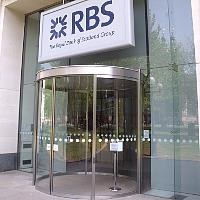(BRUSSELS) – The EU Commission approved Monday under EU State aid rules the alternative package proposed by UK authorities to replace the commitment for Royal Bank of Scotland to divest Williams & Glyn.
The Commission says the alternative package will increase competition in the UK SME banking market.The decision follows agreement in principle reached in July this year between Commissioner Vestager and the UK Government.
In April 2017, the Commission opened an in-depth investigation to assess whether the alternative package proposed by the UK authorities could be considered an appropriate replacement for the original commitment to divest part of its UK retail and SME banking operations known as Williams & Glyn (also known as “Rainbow”). This commitment to divest Williams & Glyn was made by the UK authorities as part of RBS’s restructuring plan submitted in 2009 and amended in 2014, to remedy competition concerns in the concentrated UK SME banking sector, where RBS is the leading bank.
The Commission is only able to accept modifications to existing commitments by Member States and aided banks that were given to obtain approval for restructuring aid (such as the one leading to the existing RBS restructuring decision), if the new commitments can be considered equivalent to those originally provided.
In this context, the opening of the in-depth investigation also gave interested parties the possibility to submit to the Commission their views on the new commitments and the Commission received comments from many parties. The UK authorities proposed amendments to the package to take into account some of those comments and ensure equivalence of the alternative package with the divestment it would replace. In particular, the package targets a transfer of a 3% market share in the UK SME banking market from RBS to challenger banks.
The Commission says its investigation concluded that the improved package is sufficient to replace the divestment commitment and will increase competition in the UK SME banking market:
- The Capability and Innovation Fund will be distributed to eligible challengers to develop their capability to compete with RBS in the provision of banking services to SMEs and/or develop and improve their financial products and services available to SMEs.
- The Incentivised Switching Scheme will provide funding to eligible challengers to enable them to offer incentives to encourage RBS’s SME banking customers to switch their business current accounts, deposit accounts and loans.
On this basis, the Commission has now approved the UK’s improved alternative package under EU State aid rules.
RBS is one of Europe’s largest financial services groups and had a balance sheet of £799 billion at the end of 2016. During the financial crisis, in late 2008, RBS was on the verge of collapse and has benefited from the following state aid measures:
- a recapitalisation of £45.5bn and an (eventually unused) five year contingent recapitalisation of £8bn
- an impaired asset measure covering excess loss (which was terminated with RBS not having received any payments from the State, but instead paid a cumulative fee of £2.5bn for the participation) and
- guarantees and other liquidity measures (now fully repaid).
These aid measures resulted in the UK Government holding the majority of RBS’s shares and were accompanied by the restructuring of RBS approved by the Commission in 2009 and amended in 2014.
The non-confidential version of this decision will be made available under the case number SA.47702 in the State Aid Register on the Commission’s competition website once any confidentiality issues have been resolved.



